Jason Paul Cruz
Eth2Vec: Learning Contract-Wide Code Representations for Vulnerability Detection on Ethereum Smart Contracts
Jan 08, 2021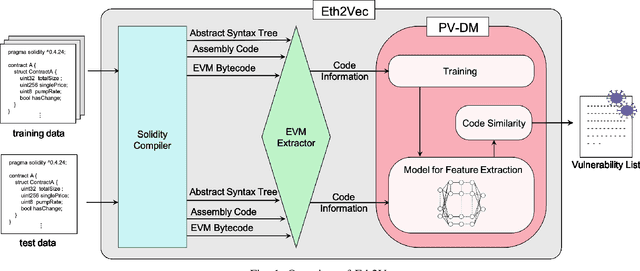
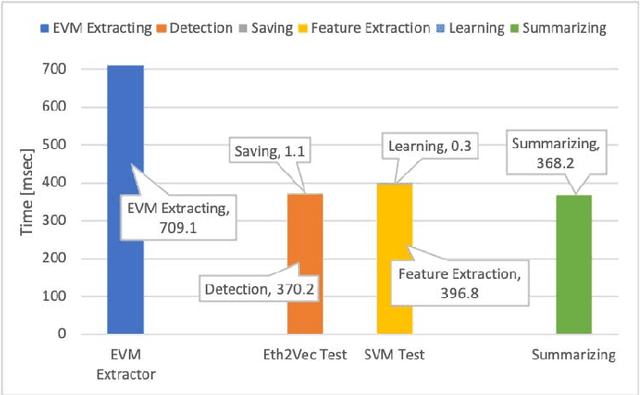
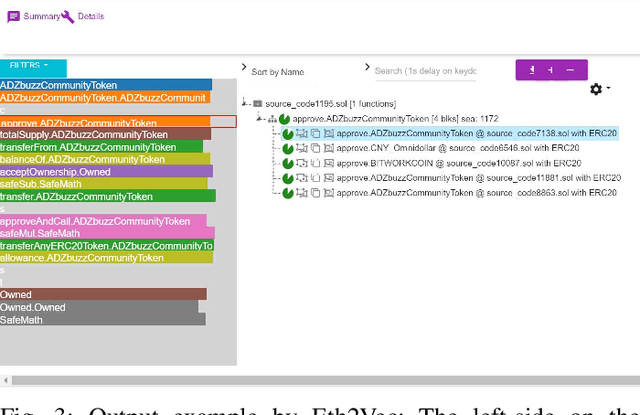
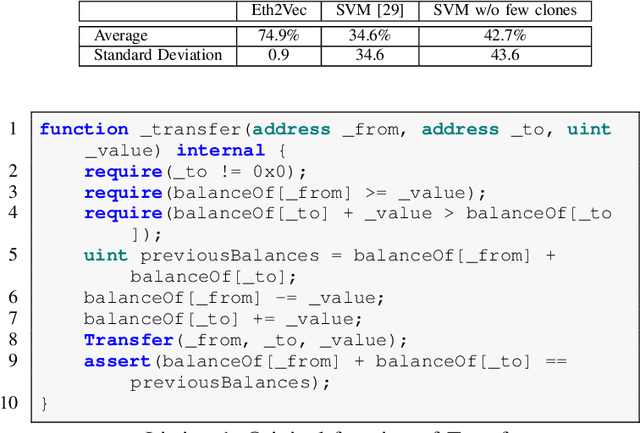
Abstract:Ethereum smart contracts are programs that run on the Ethereum blockchain, and many smart contract vulnerabilities have been discovered in the past decade. Many security analysis tools have been created to detect such vulnerabilities, but their performance decreases drastically when codes to be analyzed are being rewritten. In this paper, we propose Eth2Vec, a machine-learning-based static analysis tool for vulnerability detection, with robustness against code rewrites in smart contracts. Existing machine-learning-based static analysis tools for vulnerability detection need features, which analysts create manually, as inputs. In contrast, Eth2Vec automatically learns features of vulnerable Ethereum Virtual Machine (EVM) bytecodes with tacit knowledge through a neural network for language processing. Therefore, Eth2Vec can detect vulnerabilities in smart contracts by comparing the code similarity between target EVM bytecodes and the EVM bytecodes it already learned. We conducted experiments with existing open databases, such as Etherscan, and our results show that Eth2Vec outperforms the existing work in terms of well-known metrics, i.e., precision, recall, and F1-score. Moreover, Eth2Vec can detect vulnerabilities even in rewritten codes.
MOBIUS: Model-Oblivious Binarized Neural Networks
Nov 29, 2018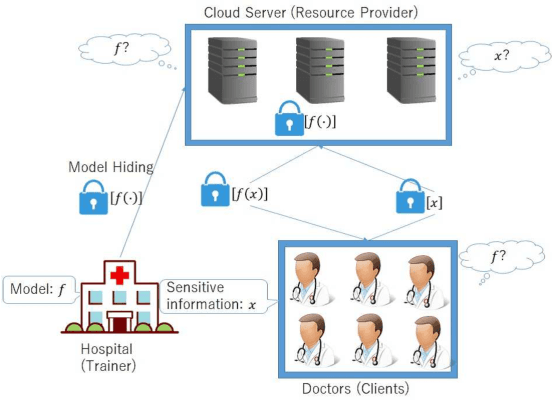

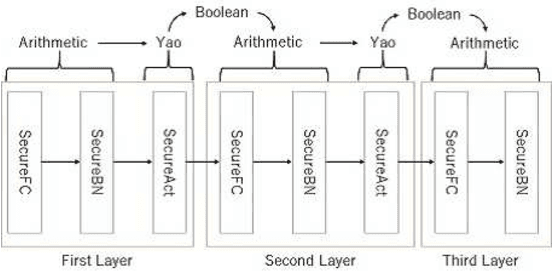
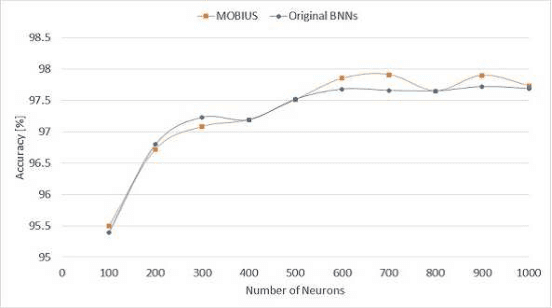
Abstract:A privacy-preserving framework in which a computational resource provider receives encrypted data from a client and returns prediction results without decrypting the data, i.e., oblivious neural network or encrypted prediction, has been studied in machine learning that provides prediction services. In this work, we present MOBIUS (Model-Oblivious BInary neUral networkS), a new system that combines Binarized Neural Networks (BNNs) and secure computation based on secret sharing as tools for scalable and fast privacy-preserving machine learning. BNNs improve computational performance by binarizing values in training to $-1$ and $+1$, while secure computation based on secret sharing provides fast and various computations under encrypted forms via modulo operations with a short bit length. However, combining these tools is not trivial because their operations have different algebraic structures and the use of BNNs downgrades prediction accuracy in general. MOBIUS uses improved procedures of BNNs and secure computation that have compatible algebraic structures without downgrading prediction accuracy. We created an implementation of MOBIUS in C++ using the ABY library (NDSS 2015). We then conducted experiments using the MNIST dataset, and the results show that MOBIUS can return a prediction within 0.76 seconds, which is six times faster than SecureML (IEEE S\&P 2017). MOBIUS allows a client to request for encrypted prediction and allows a trainer to obliviously publish an encrypted model to a cloud provided by a computational resource provider, i.e., without revealing the original model itself to the provider.
 Add to Chrome
Add to Chrome Add to Firefox
Add to Firefox Add to Edge
Add to Edge